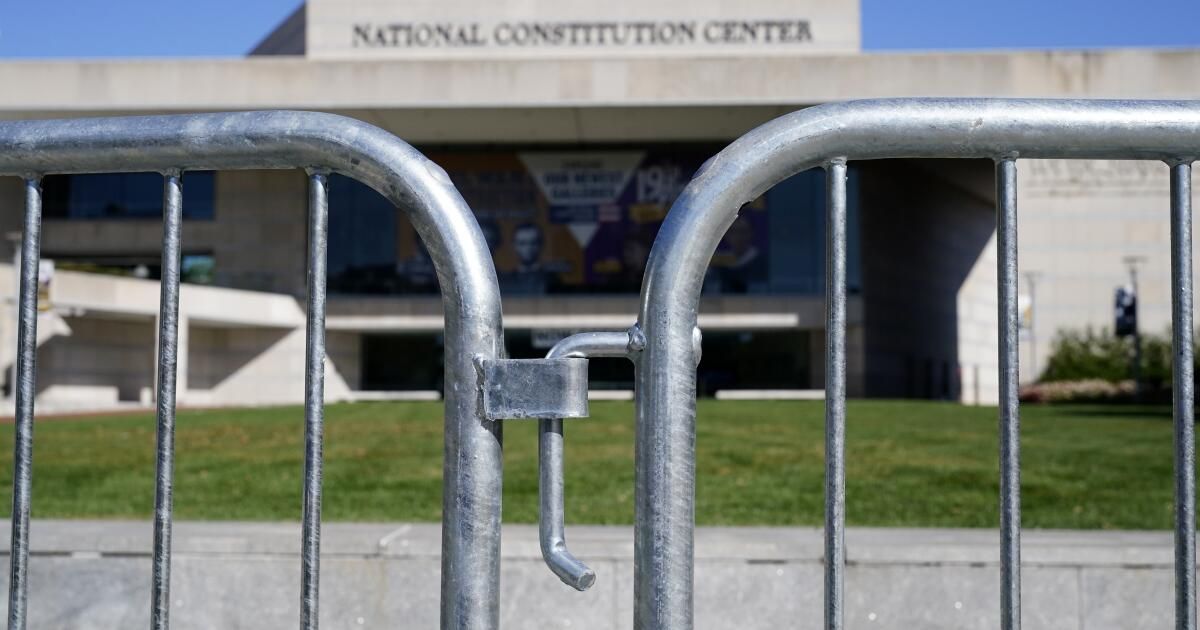In Kamala Harris' first big win interview As a presidential candidate, she was asked if she would stop weapons from reaching Israel because of the extreme harm they have caused to Palestinian civilians. Harris did not answer the question directly, instead focusing on the need for a hostage and peace deal between Hamas and Israel. Donald Trump's adviser Robert O'Brien answered to a similar question, rejecting the idea of an arms embargo on Israel and expressing concern about technology supply chains that include Israeli companies.
Both answers are incorrect. The correct answer is this: The United States will abide by its own laws and policies regarding any weapons it sends to any ally.
Harris and Trump will likely be asked about Israel and weapons again in Tuesday's debate, especially given reports of the horrific murder of six hostages by Hamas last month. So here's a quick primer on why the answer is simpler than they seem to think.
Over the decades, Congress has laws created that govern who gets American weapons and under what conditions. The American public should expect any president they elect to respect those laws.
Several of these laws, and the policies that flow from them, limit the delivery of U.S. arms to countries that have violated or are violating the rules governing war. The federal Foreign Assistance Act prohibits security assistance to any government that restricts the delivery of U.S. humanitarian aid. The best known Leahy IawsChampioned by now-retired Vermont Democratic Senator Patrick Leahy, it prohibits the sending of weapons to military units that have committed serious human rights violations.
In the case of US weapons destined for Israel, the only real question is whether Israel's conduct in Gaza has violated those provisions. If Israel conducts its military campaign in Gaza in accordance with US laws and policies, it can continue to receive US weapons; if not, shipments of those weapons must be stopped. It's that simple.
Yet our presidential candidates are struggling to find an answer that attempts to solve too many problems at once. The issue here is not support for Israel as a nation, nor is it a guarantee that Israel can defend itself. If Harris and Trump want to support Israel in its self-defense, they can do so without hesitation, in accordance with American laws.
Nor is it about the horrors that occurred on October 7. The ordeal that the surviving hostages continue to endure and the harm that was inflicted on civilians that day by Hamas's Qassam Brigades and other Palestinian armed groups were crimes against humanity. But the U.S. law reflects the need for any government seeking U.S. military support to respect international law in its response to violations by others, however serious.
The Biden administration has been going through contortions to provide military support to Israel without regard for American or international law. Paused a shipment of 2,000-pound bombs in May, citing concerns about harm to civilians, and even admitted in a report That same month, the White House informed Congress that U.S. weapons had likely been used in a manner inconsistent with the law, but said it did not have sufficient evidence to show that specific violations had occurred that would have led to the suspension of future arms shipments.
But the evidence the Biden administration says it doesn’t have is everywhere. Careful investigations by the United Nations and organizations like mine have been documenting and reporting alleged violations since hostilities began in October, including by Israeli forces. illegal airstrikeshe use of starvation as a method of warfare and torture of Palestinian detainees. The International Court of Justice has asked Israel three times to open the Gaza crossings to aid shipments.
A presidential candidate who publicly pledges to respect U.S. laws on arms transfers could put pressure on Israel to comply with its legal obligations in Gaza. The Obama administration retained an entire category of weapons of Saudi Arabia for the damage it was causing in Yemen, and the The Biden administration did it again For three years, until the Saudis became convinced they had to end that war. The Biden administration also withheld aid to Egypt over human rights abuses, leading to some reforms. (Biden’s next aid package to Egypt is due to be decided later this month, and the administration has indicated a willingness to waive some human rights conditions, though the situation in Egypt remains dire.)
Despite clear evidence that weapons are a tool of pressure, the Biden administration has been unwilling to use them decisively to pressure Israel to stop indiscriminate attacks and achieve broader access to aid for Palestinians threatened by a lack of food, water and access to medicines, including polio vaccines.
The fact that the Biden administration has publicly expressed concerns but continues to provide unconditional US arms support has meant that the Israeli government has had no incentive to change its behavior in Gaza. The Biden administration has missed an important opportunity to do the right thing and respect US law and policy. This is a problem not only for the conflict in Gaza, but for future armed conflicts. Disregarding the law sets a precedent for future governments to arm any ally, regardless of their conduct.
The Biden administration has made its position clear, but it is not too late for presidential candidates to properly answer questions about their support for Israel. Bringing hostages home? Yes. Ensuring peace for Israelis and Palestinians? Yes. Unconditional weapons? No.
Sarah Yager is the Washington director of Human Rights Watch.












